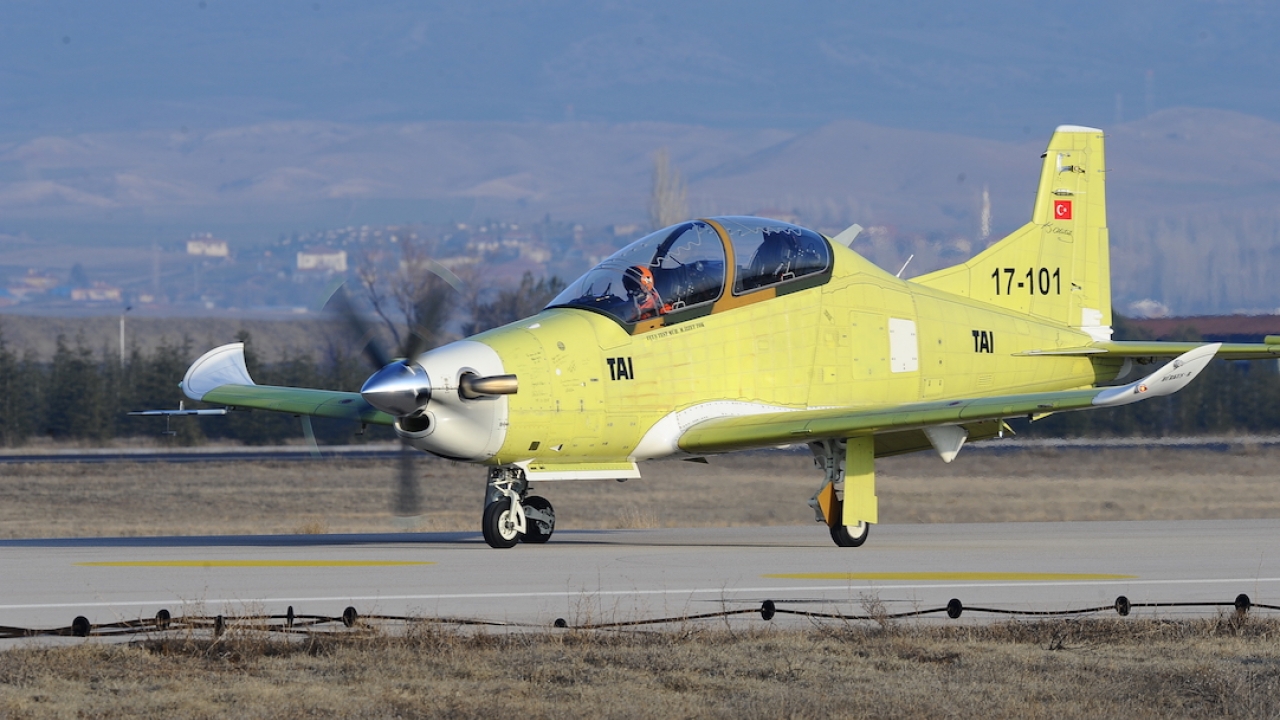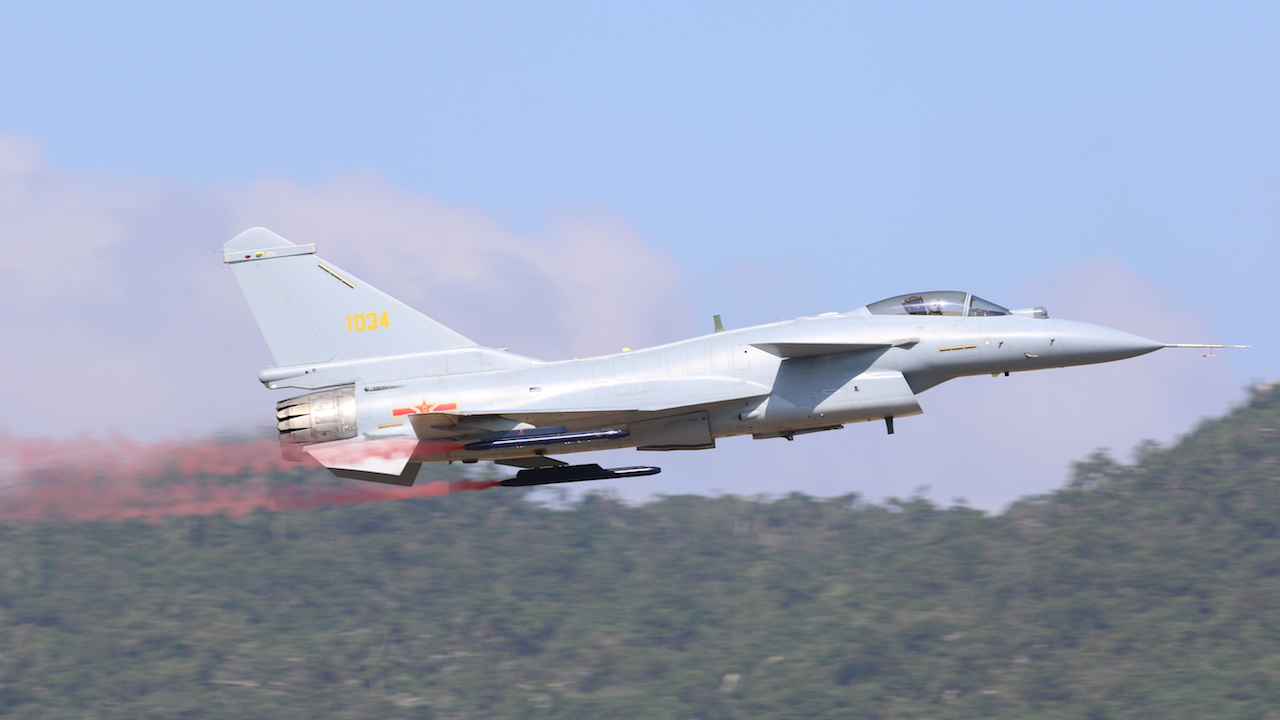Why African militaries now want to talk Turkey
Africa has traditionally been a continent whose armed forces bought their weaponry from superpowers or former colonial nations. Now, there is a new kid on the block.

Gaining a foothold: The Hurkus turboprop, whose -B advanced trainer version is seen here, has recently sold its armed -C variant to at least two African states. Picture: TAI.
Turkey has made no secret of its interest in Africa. Its national carrier, Turkish Airlines, has said in recent years that it wants to be the largest airline in the continent – no small ambition when the major Gulf carriers like Emirates and Qatar Airways already have extensive route networks there.
Last November, Spanish current affairs publication, Atalayar, noted that Turkey’s president, Recep Tayyip Erdogan, has visited more African countries than any other non-African leader and that Turkey has signed military agreements of varying types with most African nations, notably in east and west Africa.
Atalayar also noted that Turkey’s weapons exports to Africa, although still relatively small, were increasing rapidly – from $83 million in 2020 to $460 million in 2021. A study by the German Institute for International and Security Affairs found that Turkey held less than 1% of arms exports to Africa but described its rapid growth as ‘impressive’.
For African nations, buying weapons from Turkey has several advantages. Firstly, the country has advanced significantly in weapons manufacture in recent years and its products have shown their capabilities in several conflicts. Its uncrewed aerial vehicles (UAVs), such as the Bayraktar TB2, played a significant role in Azerbaijan’s conflict with Armenia in 2020, destroying many Armenian armoured vehicles. The Bayraktar TB2 has also been active with Ukraine’s armed forces in the current conflict with Russia.
Secondly, Turkey’s weaponry, particularly its UAVs, are usually less expensive and easier to operate than those from Israel or the US.
Thirdly, buying from Turkey gives African nations an avenue through which to get modern weaponry without having to ‘take sides’ between the US, Russia or China.
Atalayar listed Somalia, Togo, Niger, Nigeria, and Ethiopia as buyers of Turkish UAVs. The platforms provide their operators with a relatively inexpensive means of providing surveillance over the continent’s vast swathes of scrubland, through which Islamic insurgents often move swiftly by motorcycle.
In a report for the BBC last summer, analyst Robert Melly, a consulting fellow at the Chatham House research institute in London, noted that Togo had recently received its consignment of Bayraktar TB2s. Togo is facing infiltration by Islamists, while Niger – which has had a major problem with the insurgents for approaching a decade – had opted for six of the Turkish UAVs, said Melly.
“For African buyers, especially poorer countries, drones provide the chance to develop significant air power without the vast cost in equipment and years of elite training required to develop a conventional strike force of manned jets,” he noted.
When it comes to crewed aircraft, Turkey is establishing another foothold in Africa with its Hurkus turboprops, which Turkish Aerospace Industries (TAI) is supplying to Chad and Niger.
Hurkus is a tandem two-seat, low-wing, single-engine aircraft designed as a new-generation trainer and also for light-attack and armed reconnaissance missions.
Numbers involved are believed to be small; two Hurkus-Cs to Niger and three to Chad, but more seem likely to follow. Hurkus-C is the armed variant of the Hurkus-B advanced trainer, able to carry up to 1,500kg of weapons.
The Niger machines were due to be delivered at the end of 2022 and follow on from a reported order for 12 of the B trainer version. Those for Chad were due to be delivered in the first quarter of this year, although confirmation of deliveries is awaited.
There have also been several reports that Libya has signed for an unknown number of Hurkus, although this has not been confirmed.
Like Turkey’s UAVs, the Hurkus can give small air arms a reasonable capability for a relatively modest price tag. When it comes to combatting Islamic insurgents, high-tech weapons are largely irrelevant; in many cases, the ability to carry unguided bombs, rockets or machine gun pods is perfectly adequate.
Stay up to date
Subscribe to the free Times Aerospace newsletter and receive the latest content every week. We'll never share your email address.


